66 Pro Death Penalty Quotes by Republicans from the U.S.A II
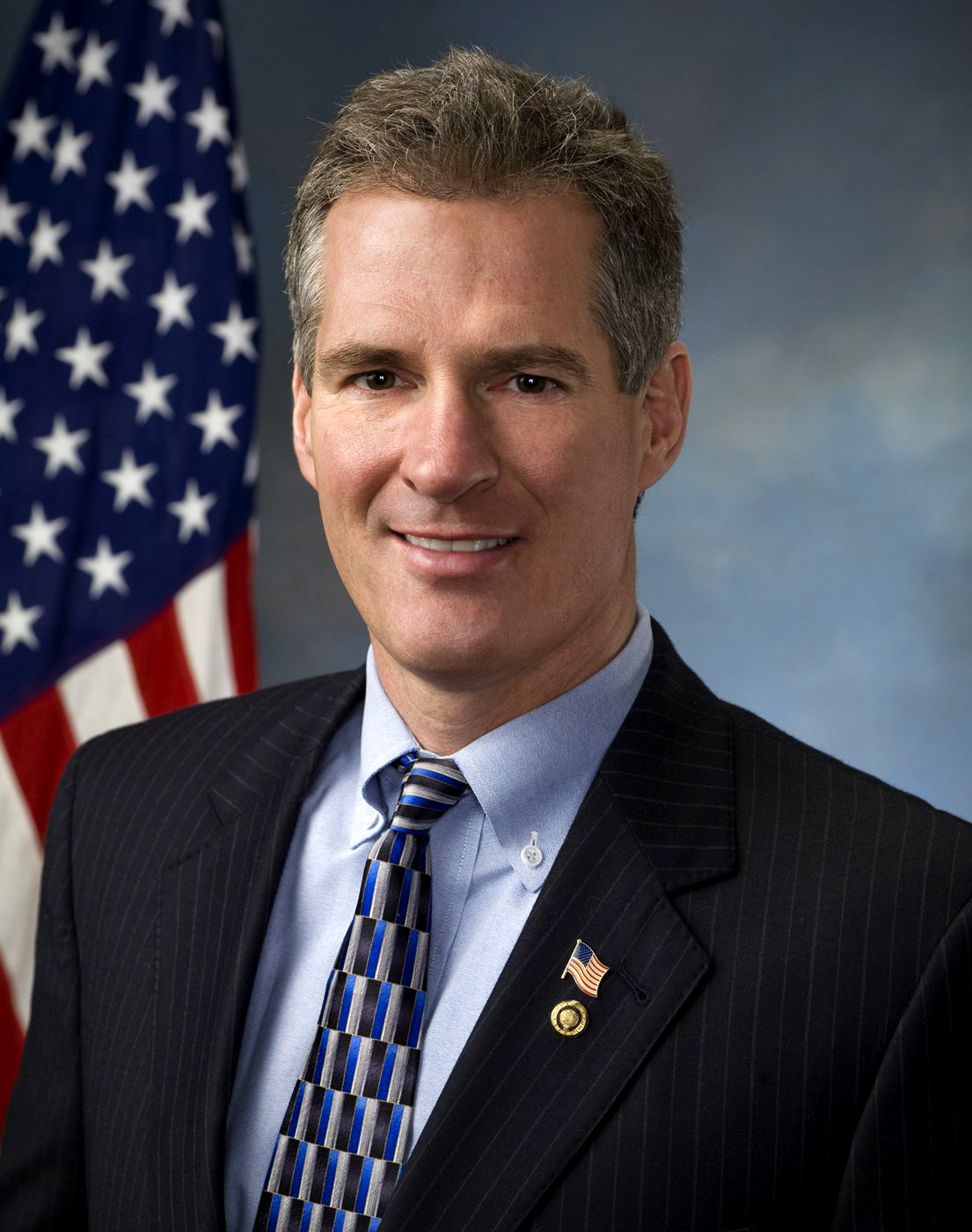
|
Scott Brown released a statement and video
this morning announcing his support for the death penalty, and criticizing
Capuano and Coakley for their "ongoing debate over who’s more
liberal." "Unlike both of them, I
support the death penalty. Anyone who reads the newspaper or watches the
nightly news knows there are some crimes that are so horrific that they shock
our conscience. Deadly acts of terrorism, murders involving torture and
the killing of law enforcement officials are among the types of crimes that
deserve the ultimate punishment. I believe a well-crafted death penalty
law that relies on advances in DNA evidence and other forensic science to
conclusively prove a defendant’s guilt will deliver the justice that the public
demands and innocent victims deserve.” |
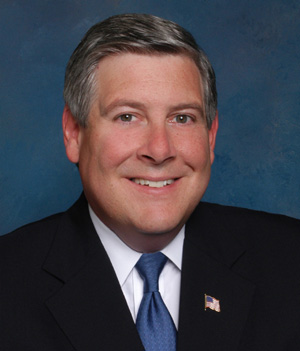
|
Sen. Kirk Dillard, R-
Hinsdale, said the people of his district believe in executions for mass
murderers and killers of police, prison guards and children. "Those who murder law enforcement officials, prison guards or children or the mass murderers, to me need to have the death penalty in most, if not all cases."
"All
life is precious, but when it comes to those heinous crimes that go to the
heart of our society, I still believe, as the people who live in my 24th Senate
District believe, that we still need a death penalty." HB1519 Would allow prosecutors to seek the death penalty only if: * The murder victim was a witness to a crime, or a judge, juror, prosecutor or defense attorney * The murder victim was tortured * The murder victim was a police officer * The murder victim was a correctional officer * The defendant murdered more than one person SB2277 Would create a State Death Penalty Review Committee. The committee would consist of the attorney general or his or her designee, the Cook County state’s attorney, the president of the State’s Attorney’s Association and another state’s attorney and a retired judge appointed by the governor. An alternate member would be appointed by the governor in case of ties. The committee would approve or disapprove of all requests by prosecutors to seek the death penalty in first-degree murder cases. "The
death penalty should remain intact for what I call 'the worst of the worst of
crimes." Bring back the death penalty Restore capital
punishment for monstrous crimes March 18, 2011 - Over the years, I, too, have shifted a great deal in my view
of the Illinois death penalty. I have worked on this issue with painstaking
sensitivity to the accused and, most important, the victims. I have advanced
landmark changes to the state's death penalty law and sponsored legislation to
improve the safeguards and administration of capital punishment, including laws
requiring videotaping interrogations, making it easier for the Illinois Supreme
Court to change death-penalty cases to life without parole and mandatory DNA
testing. I served as a member of the Capital Punishment Reform Study Committee
and know the pitfalls of capital punishment. I understand the system must be
flawless and have worked to enact significant reforms with that goal in mind. Bring back the death penalty Restore capital punishment for monstrous crimes March 18, 2011 - I believe the decision to abolish the death penalty does not reflect the view of the majority of Illinoisans, many of whom think that we should continue to pursue the death penalty for — at a minimum — the "worst of the worst." Bring back the death penalty Restore capital punishment for monstrous crimes March 18, 2011 - I empathize and have deep sympathy for the families of victims of crimes and can see where some would want fuller closure, and ultimately why they would want an eye for an eye. On Wednesday 13 April 2011, State Sen. Kirk Dillard, R-Hinsdale, has renewed his call for the reinstatement of the death penalty following the stalking and killing of a woman in DuPage County. Dillard’s district includes Naperville. The senator pointed to a story that broke Thursday about a 20-year-old Canadian man who methodically stalked and tracked a Westmont woman before killing her Wednesday night in Oak Brook — even stopping to reload his gun and continue shooting during the attack - About two weeks ago, Smirnov decided to leave Canada, returning to the United States, Berlin said. According to Berlin, Smirnov had done research to determine if Illinois had the death penalty, and decided to go through with Vesel’s murder when he discovered it does not. This point aggravated Dillard. “The proves the fallacy of the idea that the death penalty is not a deterrent,” Dillard said. On Wednesday 13 April 2011, State Sen. Kirk Dillard, R-Hinsdale, has renewed his call for the reinstatement of the death penalty following the stalking and killing of a woman in DuPage County. Dillard’s district includes Naperville. The senator pointed to a story that broke Thursday about a 20-year-old Canadian man who methodically stalked and tracked a Westmont woman before killing her Wednesday night in Oak Brook — even stopping to reload his gun and continue shooting during the attack. |

|
"If we don't have a death penalty now, how do we not treat these
people separately?" said state Rep. Themis
Klarides, R-Derby, who voted for Kissel's amendment and against the repeal
legislation. "The people of the state expect
something different for them." [Wednesday 21 March 2012] |
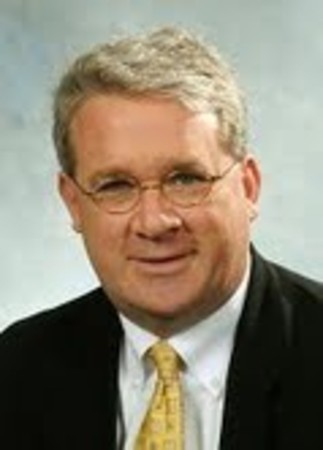
|
Durkin participated in shaping death penalty reform measures in the 1990s and early 2000s. "People who say the system is broken and can't be fixed are just wrong," he said. "We have made significant progress." The death penalty should stand if it brings closure to the families who have lost loved ones to heinous, violent crimes, Durkin believes. The evidence against the 15 men on death row in Illinois is substantial, Durkin said. They've been given fair trials and the due process they're entitled to, he said. "I trust the governor will make a responsible decision," Durkin said. "I think an amendatory veto is in order -- or a referendum that would place the issue on the ballot for consideration by voters across Illinois." |

|
Thursday 5 April 2012 - Sen. Toni Boucher, R-Wilton, voted against the bill after speaking with a member of law enforcement who told her that the death penalty works as a deterrent, she said in a statement. She said he specifically said it keeps organized crime from committing premeditated murder and helps law enforcement learn more about serial killers who will offer more information to not face the death penalty, the statement said. “If it deters just one person from putting a gun in their face and pulling the trigger, I can live with the vote that I am about to make,” Boucher said in her statement. Her district covers Bethel, New Canaan, Redding, Ridgefield, Weston, Westport and Wilton. |
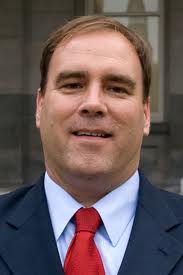
|
Can a price on be put on justice? Like countless other Californians, I support the death penalty because it is the strongest statement that we as a society can make against the cold-blooded killers of innocent human beings. The death penalty deters crime and ensures that those who have murdered can never murder again. [Death Penalty Needs Streamlining, Not Repeal May 4, 2012 By Curt Hagman] It is true that California has spent a lot of money on only 13 executions since 1978. It is also true that there are more than 700 inmates on death row still awaiting justice. The best way to reduce costs is to remove unnecessary delays that have created unnecessary costs. If other states can spend less implementing the death penalty, California can do the same. [Death Penalty Needs Streamlining, Not Repeal May 4, 2012 By Curt Hagman] If death penalty skeptics are truly concerned about costs, they should work with us to lower them, but that is not their real goal. The death penalty exists because of the horrific crimes committed against the citizens of California. And the high cost of implementing the law is driven by the very people that are against the law. [Death Penalty Needs Streamlining, Not Repeal May 4, 2012 By Curt Hagman] |

|
Wednesday 11 April 2012 - State Rep. Gail Lavielle, R-143, was also troubled by the prospective nature of the repeal, stating that a crime similar to the Cheshire triple murder could be committed after the bill goes into effect and the suspects would not face the same penalty as Hayes and Komisarjevsky. "We can't say, 'If you commit the Cheshire home invasion, you get the death penalty but if you commit the same crime three years from now, you don't get it." Lavielle said she could get behind a straight-forward debate of the abolishment of the death penalty, but the prospective compromise "smacks of politics." She said she also believes the proposed punishment that would go into effect in place of the death penalty is problematic, as it gives the Commissioner of Corrections the authority to release a death row inmate into general population, posing a threat to other inmates as well as the condemned inmate. |
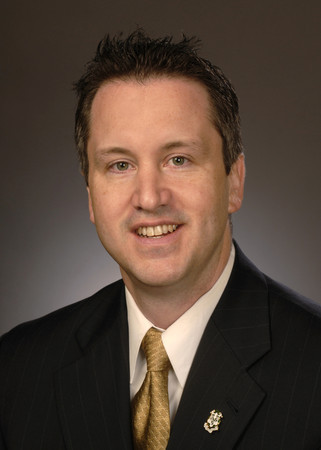
|
Wednesday 5 January 2011 - Sen. Rob Kane, R-Watertown, whose 32nd District covers Oxford, is also a major supporter of the death penalty. Last month, he put out a news release stating that he will fight to preserve the death penalty in Connecticut. He states: "It is quite possible that the General Assembly will take up the issue again as Governor-elect Dannel Malloy has expressed his opposition to the death penalty. If the Governor-elect's position leads to a new proposal to abolish Connecticut's death penalty, I will look forward to participating in a spirited debate on the floor of the State Senate. But, in the end, I will vote against abolishing the death penalty and I fervently hope that any attempt to pass such a law will fail." |

|
“Some crimes are so heinous in nature that society cries out for it.” |
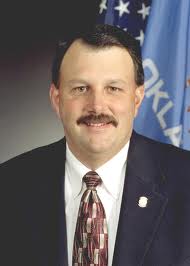
|
Wednesday 9 May 2012 - State Rep. Don Armes called on
lawmakers to find a way to allow the Oklahoma Department of Corrections to
continue to execute Death Row inmates in light of a shortage in the drug used
for executions, according to a media release. Armes said only the worst of the worst make it to Death Row. “Once a criminal makes it to Death Row, they are beyond rehabilitation and their execution deters other would-be killers and brings justice to the victims and families of the victims. One current Death Row inmate was convicted after he chased a little 5-year-old girl through the woods to kill her. These particular inmates do not warrant our sympathy,” he said. Armes said there are legal alternatives to lethal injection. “We may have ran out of the drug currently required under law, but I think we still have options though we have to take action to make them feasible. We need to get this done as quickly as possible to ensure we do not delay executions unnecessarily,” Armes said. “Oklahomans believe in the execution of brutal and cold-blooded killers. They expect us to carry out their will.” |
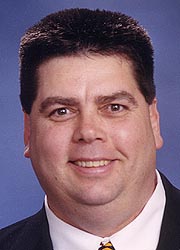
|
Wednesday 16 January 2013 - Jacobs said cases like the Sandy Hook shooting would be a good case for why the death penalty should stick around, and Smigiel agrees. Smigiel said if the death penalty is in effect, that shooter's sentencing will either be life without parole or death, and if the death penalty is not in effect, than that shooter's sentencing will either be life without parole or life with parole. "Do you want that person back on the streets? If you really want to keep these people off the street, that can only be done by leaving the death penalty as the ultimate penalty that they face," Smigiel said. But for Smigiel, there's more to the issue than just the criminal facing possible death. "The reason we have a death penalty, part of it, is the public has faith that justice will be imposed. If you stop imposing justice, then those who believe in the Old Testament (eye for an eye) ... will seek to get justice on their own," he said. |

|
Sen. Susan Wagle, a Wichita Republican, said she isn't conflicted in her Catholic faith and support of the death penalty. She noted that Supreme Court Justice Antonin Scalia, who is Catholic, helped to uphold the state's death penalty law in 2006. "I believe that life is precious at all stages, and in our criminal system if you have someone who has taken the life of another there should be a very unique penalty for that," she said when debating the death penalty in Kansas on 18 February 2010. |

|
"Obviously
no one knew the name James Eagen Holmes at the time [in 2009], but this is
exactly the kind of barbaric scenario that we discussed," former
Senate Minority Leader Josh Penry told the Colorado Observer. "For truly heinous crimes like these, the death penalty
isn't only a good option, it is what justice requires." [Friday 27 July 2012] |
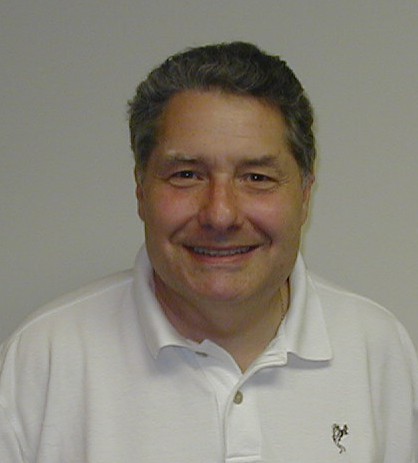
|
"There's types of crime that rise to that level of punishment, whether it's the killing of a Lakewood police officer, a mass shooting in Arizona, certain crimes against children, when just spending the rest of a life in jail is not right when the person deserves the death penalty." "I mentioned to everyone that it's a terrible loss for policemen who protect us and it's terrible that a Lakewood resident allegedly did it, a double-crime for our town. This is a 19-year-old kid who's been charged. It's frightening. We have to do more to make sure the young people get the message that violence is wrong." “The cop-killer is going like a rock star to prison because he killed a police officer. He should be put to death.”
“I do not support the death penalty out of a need for revenge or due to malice in my heart. Neither do the many individuals I have met who have suffered from heinous crimes,” Singer said in a statement. “I support the death penalty because, sometimes, it is the only way to achieve justice for the victims and families affected by horrible crimes.” “I am well aware that the death penalty will not bring back a slain police officer, a murdered child or a victim of terrorism,” Singer said in a statement. “For certain crimes, however, life in prison is not justice.” "Across the country, since the first of the year, 10 police officers have been murdered. I think we have to send a strong signal in New Jersey that we don't tolerate it here and that there is the ultimate price you will pay for doing so," said Singer Wednesday. "And this is not just to murderers as such; it's also to gang members to say, 'Look, if you're going to attack our police officers, we're coming back at you.' " Thursday 23 February 2012 - TRENTON – State Sen, Robert Singer (R-Monmouth and Ocean) said a plea deal reached in a case of senseless killings of innocent bystanders in Elizabeth is an egregious example of why the death penalty should be reinstated in New Jersey. “A shooter in a double murder of a 13-year-old boy and a 54-year-old construction worker can walk free at age 42,” Singer said. “Where’s the justice in that?” Bryant “Smoke” Lee, 23, pleaded guilty this week to reduced charges for his role in the 2007 shooting deaths of eighth-grader Elijah Henderson and laborer Celso Pedra, according to authorities. Lee is to be sentenced to 23 years in prison and will be eligible for parole in 20 years. Singer sponsors S-175, which aims to allow judges and juries to impose the death penalty on convicted murderers of people younger than 18 years old, on-duty law enforcement personnel, or people during a terrorist attack. Under New Jersey’s former death penalty, repealed in 2007, a jury or court could weigh as part of their death-penalty decision whether a killed victim was under the age of 14 years old. Thirty-four states in this country have the death penalty. “We need to allow justice to provide closure to families suffering the tragedy of losing innocent loved ones and raise the stakes for killers,” Singer concluded. “By committing such horrific crimes, I believe murderers forfeit their rights to a plea bargain.” |
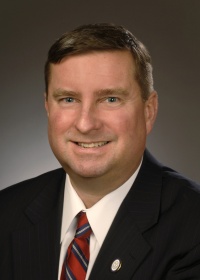
|
On Tuesday 7 March 2011: State Rep. David Kiner (D-59) is also opposed to the death penalty. When recently asked about this issue, Kiner said: "I am opposed to the death penalty for these three simple reasons: 1.) There is always the possibility, as recent cases suggest, that innocent people may be executed. DNA evidence has shown this to be true. Until people are found guilty beyond all doubt and not just a reasonable doubt I will continue to oppose the death penalty. 2.) The death penalty is not a deterrent! If it were, states like Florida, Virginia and Texas would have a much lower crime rate than what they do. 3.) After all appeals have been exhausted, it ultimately ends up costing the state of Connecticut more money, than to incarcerate the guilty with absolutely no chance of parole." Sen. Kissel opposed the bill and spoke at length on the floor of the Senate, citing a number of reasons for his opposition. “When it comes to my Correction Officers,” said Sen. Kissel, “if you’re in prison for life without the possibility of release, there is no deterrent to keep and inmate from killing a correction officer or some other prison employee. If we abolish the death penalty there is no big stick left to keep law and order in our correctional facilities.” Kissel also offered an amendment that would carve out an exemption to the underlying bill for the murder of an employee of the Department of Correction by an inmate. The amendment was defeated 20-15. Kissel also noted that while he opposes abolishing the death penalty, he believes it should be used only in rare cases. “I support the continuation of reserving the death penalty for only the most heinous crimes,” said Kissel. “I fully support the notion that capital punishment should be legal, but rare. New England has an incredible history of tolerance. We believe in justice, equality and that people should treat each other with respect and dignity. We are unafraid to take the high minded view to lead the nation in how we treat one another and in that vein, while I espouse the belief we need to have a death penalty, we need to keep it rare. Other arguments in favor of the death penalty are ones that we have heard before. 1. Capital punishment removes the worst of the worst criminals from society forever. There will never be escapes or parole and society will forever be protected. 2. The cost to keep a murderer incarcerated is huge. The money is better spent on helping society rather than spending dollars keeping a sociopath in prison. 3. Execution is retribution for the commission of the worst of crimes.
4. The death penalty is a deterrent and indeed does prevent others from
committing murder. Tuesday 14 February 2012 - St. Sen. John Kissel, however, is among those fighting to keep the law on the books. It’s net worth, he says, goes beyond putting a criminal to death. “It has been used many many times to get plea bargains for lesser charges and so I do believe that this has a valuable place in our criminal justice system,” he told WCBS 880 Connecticut Bureau Chief Fran Schneidau. “I can’t stress any more that there is just a tremendous amount of cases that are resolved by having the death penalty on the books and if anybody has any question as to how important it is, look at how rigorously defense counsel fight cases where there’s the possibility of death penalty as punishment.” Wednesday 14 March 2012 - Sen. John Kissel, a Republican from Enfield, whose district includes several prisons, asked what would happen to those who commit capital felony crimes in the future if capital punishment were replaced with life in prison without the possibility of parole. He said he wants to make sure such prisoners remain segregated from the general prison population and given no perks if the death penalty is repealed. "At the base, I don't think it's fair,'' Kissel said, ”The fact that these individuals in a few years could be at the lunch line serving the other inmates, getting all the other rights and responsibilities ... I can't look at people who lost loved ones ... and say that's any kind of justice." In addition to sparing our death row murderers, eliminating the death penalty will have other implications. Once the threat of capital punishment is removed, no one will plead guilty to a murder that involves a sentence of life without parole. The use of the death penalty as an investigative and plea bargaining tool will be gone. [Opinion: An emotionally draining week at the state capitol Friday, April 13, 2012] If the worst penalty remaining on our books is life in prison without release, what assurances can be offered to correction officers, witnesses, or the public at large that an incarcerated killer will not kill again? To a person facing life without release, no additional penalty could be brought against him if he kills again or orders a murder for hire from his cell. Absent the death penalty, there is nothing more that can be taken away. [Opinion: An emotionally draining week at the state capitol Friday, April 13, 2012] |
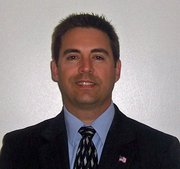
|
"If someone takes an innocent life, the person no longer deserves their own," Greazzo said. "I'd argue if the death penalty in the state of New Hampshire isn't available to each and every murder, it should not be available to any." Thursday
20 October 2011 - Rep. Phil Greazzo, R-Manchester, sponsored
HB 162, and said his bill is a matter of fairness. He said the state
Constitution says all people “should be protected
equally under the law.” Selecting the murder of certain people for
punishment by death violates that principal, he said. Greazzo answered that he did not file the bill as a deterrent. “It's a matter of equality,” he said. He pointed out that the bill does not require the seek death penalty in any case, but it gives prosecutors the option in every case of murder. Saturday 26 November 2011 - Manchester Republican Rep. Phil Greazzo believes if one murderer can face the death penalty in New Hampshire, all should be eligible for that punishment. If it’s not an option for everyone, he reasons, why have it? So he has proposed legislation to expand the state’s death penalty law to include any intentional murder. “If it’s going to be too expensive to prosecute and execute every murderer, it shouldn’t apply to anyone,’’ Greazzo said. “Everyone should be treated equally under the law, even murderers.’’ "If I hire someone to commit a murder for me, that would bring the death penalty," he said. "If I did it myself, there's no death penalty. So the law is a little bit askew in fairness." Under current state law, crimes eligible for the death penalty include the murder of law enforcement or judicial officers on the job, murders involving certain drug crimes, murder-for-hire, murder during life imprisonment and murder during a rape, kidnapping or burglary. The final category was added last year in response to the murder during a home invasion of Mont Vernon resident Kimberly Cates. Greazzo said the distinctions created by the law are inconsistent with the constitutional requirement that laws apply to all citizens. If he had his choice, the capital murder statute would apply to all intentional murders. "I think in the interest of equality and justice, anybody who commits a murder should forfeit their life," Greazzo said. "They don't deserve to live." He
said it should not matter if the person killed is a police officer or an
average person.
"It doesn't seem right if someone killed my daughter," he said. "I would want them to face the death penalty. I wouldn't want the state to choose who is special and who is not." |
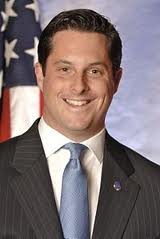
|
On Monday 7 March 2011, Dozens of local law enforcement officials came together Friday, two weeks since the death of Poughkeepsie Detective John Falcone, in support of state Sen. Greg Ball’s cop-killer bill. The legislation would reinstate the death penalty in New York for individuals convicted of murdering a police, peace or corrections officer. According to Ball’s press release, a 2004 New York Court of Appeals ruling prevents prosecutors from seeking capital punishment in cases of an officer’s death on the job. One New York Times story stated that the decision “effectively invalidated the state’s death penalty law.” Since that ruling, Ball’s press release states, eight police officers in New York have been intentionally murdered. Ball stressed the importance of the state backing law enforcement officials. He said it is important for family members to have the comfort of knowing that the “full weight of New York State law and legislative body, and yes the death penalty, stands solidly behind that individual.” “Everybody from the left to the right and
everywhere in between should be able to agree upon that,” Ball said. During the conference Ball spoke of Falcone, who was a member of his extended family through marriage. The state senator acknowledged that the bill would not have changed the situation because Falcone’s killer committed suicide. “If it saves one life as an act of deterrence, and there’s no doubt that it will as it has in other states, we will have done our job, not only as a legislature but as a community," he said. |
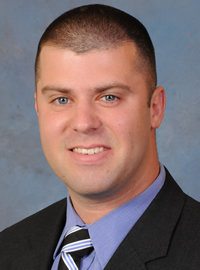
|
"We all consider our homes to be a sanctuary," said House Majority Leader D.J. Bettencourt, a Salem Republican. "The idea that someone could beak into someone else's home then commit murder in such an extraordinary and evil manner is a breach of our values. It deserves the harshest punishment available." |
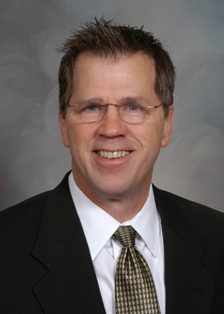
|
The Illinois State's Attorney's Association's stance backed up Rep. Dave Winters' long-time belief the death penalty is appropriate in the worst of the worst cases. "These are the professionals. They are faced with the decision on whether to try a murderer," Winters says. "And most murderers are not tried for a death penalty." |
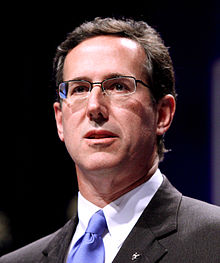
|
On Friday 20 January 2012, Piers Morgan sat down with GOP candidate Rick Santorum and his family for an in-depth interview in South Carolina. Santorum expressed his view on family, marriage and his hard line take on issues such as the death penalty. "When there is certainty, that's the case that capital punishment can be used," Santorum said. "If there is no certainty, under the law, it shouldn't be used." |

|
State Rep Mike Alberts, R-Woodstock, said the issue is more emotional
than one that falls along party lines. He is against repealing the law. |
|
“When a person commits a crime, there should be a penalty.” |
|
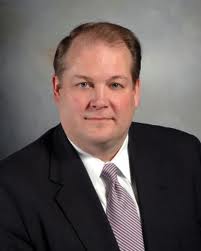
|
Friday 27 January 2012 - Omaha Sen. Scott Lautenbaugh, a death penalty supporter, suggested the importation issue was a distraction being used by opponents. “Now we’re talking about supposedly shameful conduct on the part of the Attorney General’s office in trying to obtain the drugs medically necessary – it’s a sedative – medically necessary to carry out the death penalty,” Lautenbaugh said. “What I see as kind of shameful is that we’re having litigation surrounding that process, with motions being filed in the wrong court by attorneys who know better – should know better. This is beyond zealous representation.” |

|
“It wasn’t until I had spent some time with Bill Petit that I became a supporter of the death penalty,” says state Sen. Michael McLachlan, a Republican. “The crime is so clear in everyone’s minds; it’s the center of discussion. Certainly the legislature is disconnected from the citizens.” |

|
But some lawmakers are worried of the effect in prison if there's no death penalty. "But we will certainly always be remembering what happened and that a person who does have a life sentence has nothing to lose if they know they can't have a higher sentence."
Wednesday 25 January 2012 - Auburn Republican Sen. Pam Roach, who sits on the committee, said she was disappointed to see that no advocates for the death penalty came to testify. "My own personal feeling is that the law ought to be to the maximum, and that I suppose a person could plea for leniency and so forth," Roach said. "But it denies some, who would like to see a more final outcome, the ability to have that to help their healing process." In fact, Senator Roach was the only person in the hour-long public hearing who spoke against senate bill 6283. "We don't hear the awful details about what happens in a murder and there are some people who believe, and I'm one of them, that there ought to be a penalty for killing a law enforcement officer which we passed in the senate, ought to be the death penalty," she said. |

|
Wednesday 8 February 2012 - Sen. Mark Obenshain’s bill would have redefined the so-called triggerman rule, which in most cases restricts the death penalty to the person who does the actual killing. The legislation would have allowed the death penalty for accomplices who share the intent to kill. “This bill deals with the worst of the worst,” Obenshain, R-Harrisonburg, told the committee. He said that if notorious murder mastermind Charles Manson committed his crimes in Virginia today, instead of in California in 1969, prosecutors wouldn’t be able to seek the death penalty “and that is fundamentally wrong.” |

|
Supporters said the measure protects the rights of convicts but avoids unnecessary repeated appeals. "Families should not have to wait, and South Dakotans should not have to wait for decades to see justice," said Rep. Stace Nelson, R-Fulton. [A South Dakota House committee endorsed a plan Wednesday 15 February 2012 aimed at preventing death-row inmates from filing repeated appeals in an effort to delay their executions.] |

|
“Many of those prosecutors feel the death penalty is a necessary tool to punish the most heinous crimes,” said Unes. “I agree that prosecutors should have that tool. I have faith in the judicial system and the prosecutors.” |

|
Sunday 26 February 2012 - Under Senate Bill 1514, prisoners sentenced to death would no longer get an automatic appeal, according to a release issued by Anderson’s office. Senate Constitutional Amendment 20 would require that appeals of death penalty cases go to the state Courts of Appeal, instead of the Supreme Court of California.
According to Anderson’s office, SB 1514 would make California the first state to eliminate automatic appeals of death penalty cases.
“The most heinous murderers should not be afforded special appeal rights beyond those of other convicted criminals,” Anderson said in a statement. “If anything, the sooner these violent murderers are executed the safer it will be for law-abiding citizens.” By
reforming the appeals process for those cases with special circumstances,
California will ensure justice is not unnecessarily delayed. It will take
the strain off families who’ve had to relive the tragedy they suffered every
five years in onerous technical appeals, and prevent those whose guilt is
certain from getting de-facto retrials at the state’s highest level of justice,
forcing victims loved ones to stand trial again. By strengthening the
process, SB 1514 will ensure justice for the families of crime victims. [Fix Death Penalty, Don’t End It Wednesday
21 March 2012] |

|
Monday 27 February 2012 - Republican opponent Lisa Wilson-Foley, who has been running radio ads blasting "soft on crime liberals" for trying to repeal the death penalty, said voters want to know where a politician stands. She's right. "I want that severe punishment out there,'' said Wilson-Foley about the death penalty. |
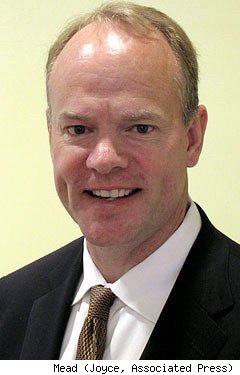
|
“I think the death penalty needs to be on the books.” |
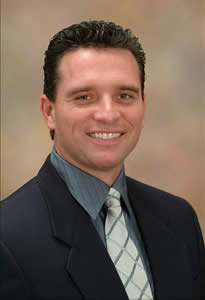
|
Senator Ty Masterson, R-Andover, said an inmate facing death might be more likely to repent as they face eternity and become "more likely to meet his savior." He said his vote against repealing the death penalty was about justice. "Justice to me, if someone rapes and butchers my children, justice to me would be the life of a perpetrator, and your asking us to repeal it, taking away my sense of justice," he said when debating the death penalty in Kansas on 18 February 2010. |

|
Wednesday 7 March 2012 - Two other delegates in the Washington County delegation who favor the death penalty — Neil C. Parrott and Michael J. Hough — sit on the House Judiciary Committee, which is scheduled to hear the repeal bill on March 20. In an interview on Wednesday, Hough said he’s Catholic and pro-life, but he feels capital punishment is sometimes justified. “If somebody’s serving a life sentence and then they kill a correctional officer, then what?” he said. “What do we give them, another life sentence? They can just keep killing people in prison?” “If you come into Maryland,” he continued, “and then you murder and rape a little child, then, I’m sorry, but I think that’s death-penalty eligible. I do think that sends a message.” |
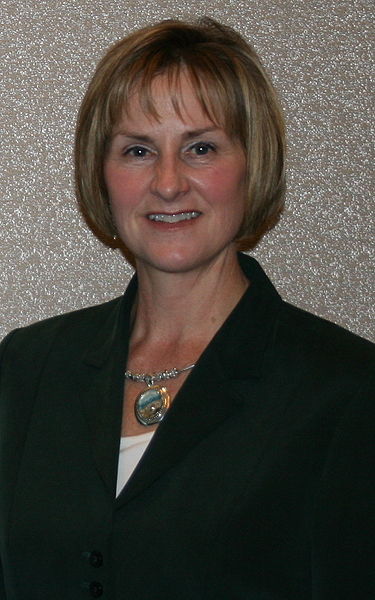
|
"We need to continue to look at the death penalty. The moratorium is still in place," said Radogno, whose district includes portions of Burr Ridge, Western Springs and La Grange. "We should reduce the number of crimes it applies to, but some crimes are so heinous that prosecutors should have the death penalty at their disposal." |